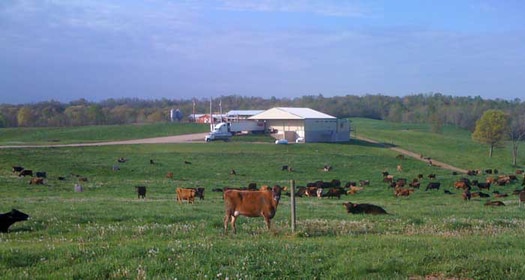COLUMBUS – With preservatives, flavorings and other unpronounceable ingredients, making sense of food labels is difficult enough. Opponents say the Safe and Accurate Food Labeling Act could create even more confusion. They refer to it as the Deny Americans the Right to Know, or DARK Act.
The legislation would allow foods made with genetically modified organisms to be labeled as natural and allow some GMO foods to be labeled as non-GMO.
Warren Taylor, who produces non-GMO milk at Snowville Creamery in central Ohio, said the act would take away people’s right to know what they’re eating.
“The cheapest commodity jug milk at a grocery store can be now labeled non-GMO milk,” he said. “Every egg sold in America can be labeled non-GMO eggs, regardless of the fact that those animals are all being fed GMO feed.”
The bill also would ban states from regulating food labeling, which supporters say would stop a patchwork of conflicting laws.
While it would set up a voluntary national labeling system, Taylor argued that most companies that actually use GMO foods are not going to advertise it.
The legislation passed in the U.S. House with only two Ohio lawmakers voting against it. The Senate could introduce the measure soon.
Taylor contended that the bill undermines existing businesses like his that sell non-GMO products.
For the past eight years, he said, Snowville Creamery has been breaking even, and recently received a game-changing offer that would have paid the company a premium for its non-GMO milk – but the deal didn’t last because of the labeling act. “
The day the DARK Act passed the House of Representatives, a week later, they called me from the cheese plant and rescinded their offer because all cheese in America became non-GMO, according to the DARK Act, if it passes the Senate this month,” he said. “Snowville Creamery is like a cat hanging on a wall right now.”
There are global economic concerns, Taylor said. At least 35 countries have laws that impose labeling or import restrictions on GMO foods. Taylor said America’s non-GMO producers will suffer without proper labeling.
“The purpose of the DARK Act is to not give the American people the GMO labeling that every other industrialized democracy and Russia and China have,” he said, “but rather to assure that the American people will never be able to make an informed choice.”
A poll this year found that 87 percent of Ohioans surveyed support the labeling of genetically engineered foods.
Details of the legislation, HR 1599, are online at congress.gov. The poll is at policy.oeffa.org.






